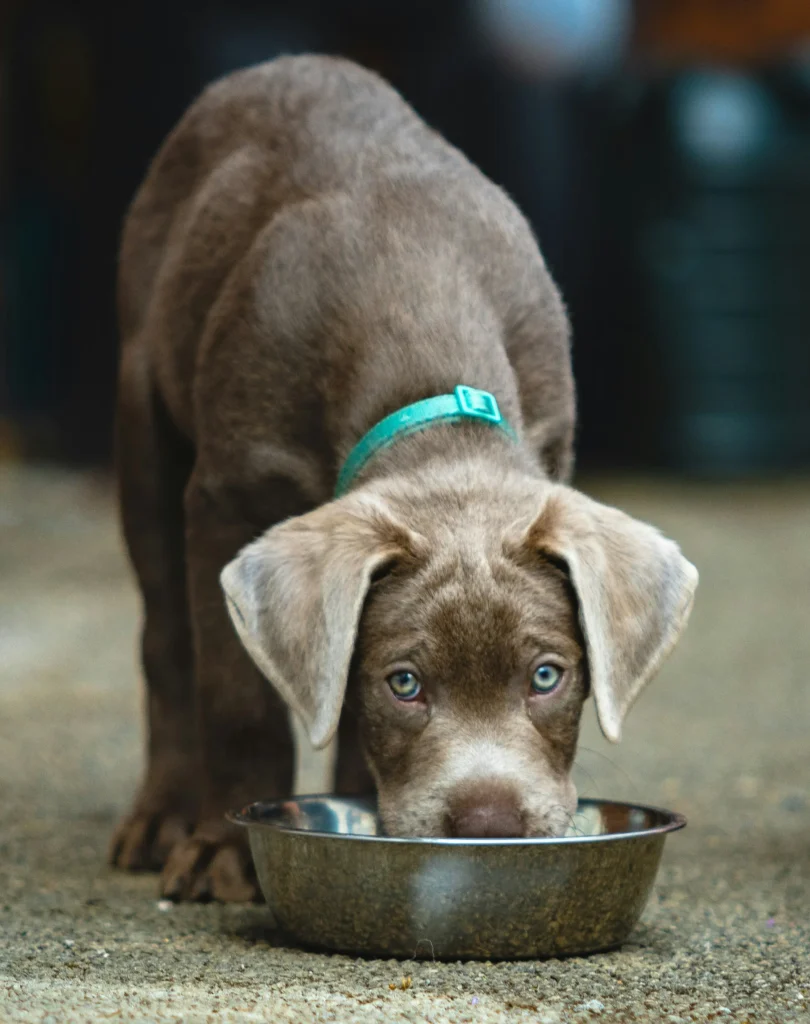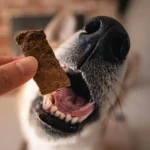What Dog Food Do Vets Not Recommend?
When it comes to your dog’s health, food is everything. In fact, poor nutrition is a leading cause of chronic illness in pets today. According to a 2024 report from the American Veterinary Medical Association (AVMA), 1 in 3 vet visits for dogs are nutrition-related. This startling figure underscores the importance of making informed choices about your dog’s diet. So, what dog food do vets not recommend?
Veterinarians often caution against certain dog food brands due to concerns over ingredient quality, manufacturing standards, and long-term health risks. In this article, we’ll walk you through what to avoid, why it matters, and how to make smarter food decisions for your furry friend.
Table of Contents
Table of Contents
Understanding the Risks: Why Some Dog Foods Are Not Recommended by Vets
Not all dog food is created equal. Some products are loaded with fillers, artificial preservatives, and low-quality meat by-products that provide little to no nutritional value.
Common Harmful Ingredients Found in Low-Quality Dog Food:
- BHA/BHT (chemical preservatives)
- Artificial dyes (Red 40, Yellow 5)
- Meat by-products from unspecified sources
- Excessive corn, soy, or wheat fillers
Veterinarians have linked these ingredients to health issues like obesity, skin allergies, gastrointestinal disorders, and even heart problems.
Expert Insight: Dr. Lisa Freeman, a veterinary nutritionist at Tufts University, notes, “Many cases of canine dilated cardiomyopathy have been traced back to grain-free diets high in legumes and low in essential nutrients.”
Dry Dog Food Brands to Avoid: What Vets Want You to Know
Dry kibble is one of the most popular feeding choices, but some dry dog food brands are notorious for cutting corners.
Factors that put certain dry dog food brands on the “avoid” list
- Use of unnamed meat meals (e.g., “animal meal”)
- Heavy reliance on grain fillers
- Poor sourcing transparency
- Low protein content
Table: Commonly Cited Dry Dog Food Brands to Avoid and Why
| Brand Name | Reason for Concern |
| Ol’ Roy | Low-quality fillers, unnamed meat sources |
| Kibbles ‘n Bits | Artificial colors, low meat content |
| Gravy Train | BHA preservative, linked to heart disease |
| Alpo | High in salt and artificial flavors |
Tips to Identify Harmful Dry Kibble:
- Read ingredient lists carefully
- Avoid products with “animal by-products” listed first
- Look for whole meat sources and limited fillers
What Makes Lone Wolf Ranch Dog Food Stand Out 2025?
If you’re curious about the growing buzz around Lone Wolf Ranch Dog Food, you’re not alone. Its reputation for clean ingredients, high protein content, and ranch-raised meats has made it a favorite among health-conscious dog owners. For a full breakdown of what sets this brand apart, read our detailed article: What Makes Lone Wolf Ranch Dog Food Stand Out 2025?

FDA Dog Food Warning List: What It Is and How to Use It
The FDA regularly investigates and reports on dog food products that may pose health risks.
Understanding the FDA’s Role: The FDA monitors complaints, conducts inspections, and issues recalls when safety concerns are confirmed.
How to Check the FDA Dog Food Warning List:
- Visit FDA.gov
- Navigate to the “Animal & Veterinary” section
- Review the latest recall and alert notices
Case Study: DCM and Grain-Free Foods
In 2023, the FDA expanded its investigation into a potential link between grain-free diets and dilated cardiomyopathy (DCM). Brands like Acana and Zignature were named due to legume-heavy formulas that may contribute to nutrient deficiencies.
What Dog Food Do Vets Not Recommend for Large Dogs?
Large breeds like Great Danes and Labradors require diets formulated to protect their joints, bones, and hearts. Poor formulation can have serious consequences.
Nutritional Requirements for Large Breeds:
- Controlled calcium and phosphorus levels
- Lower fat to prevent obesity
- Added glucosamine and chondroitin for joint support
Common Mistakes in Large Breed Formulas:
- Overfeeding protein without joint support
- High-calorie content leading to rapid growth in puppies
- Lack of omega-3s for inflammation control
Vet-Approved Alternatives:
- Hill’s Science Diet Large Breed
- Royal Canin Large Breed
- Purina Pro Plan Large Breed Adult
Best and Worst Dog Food Brands According to Vets
Vets often rely on clinical studies, ingredient transparency, and manufacturing practices to recommend or discourage specific brands.
Table: Nutrient Breakdown and Quality Indicators
| Brand | Vet Stance | Protein (%) | Fillers | Additives |
| Hill’s Science Diet | Recommended | 24 | Low | Minimal |
| Purina Pro Plan | Recommended | 26 | Low | Controlled |
| Ol’ Roy | Not Recommended | 21 | High | High |
| Kibbles ‘n Bits | Not Recommended | 19 | High | High |
Expert Quote: “Brands backed by research and quality testing are a safer bet. Avoid flashy marketing and focus on clinical credibility,” says Dr. Jennifer Larsen, DVM, PhD, DACVN, veterinary nutritionist at UC Davis.
what is the healthiest dog food with no recalls?
For pet parents who prioritize safety and consistency, finding a trusted food brand is key. In our guide on what is the healthiest dog food with no recalls?, we highlight brands with clean records, rigorous quality testing, and transparent sourcing practices—so you can feel confident in every meal.
Red Flags to Watch For on Dog Food Labels
Dog food packaging often uses marketing buzzwords that mislead consumers.
Misleading Marketing Terms:
- “All-natural” or “premium” without clear definitions
- “Vet-approved” without certification
Problematic Ingredients:
- Unnamed animal by-products
- Artificial preservatives like ethoxyquin
- Sugar, propylene glycol, and artificial coloring
Checklist: 8 Ingredients Vets Caution Against
- BHA/BHT
- Ethoxyquin
- Meat by-products (unnamed sources)
- Corn syrup
- Artificial colors
- Propylene glycol
- Sodium nitrate
- Rendered fat
How to Choose Vet-Approved Dog Food With Confidence
Choosing the right food means being informed and asking the right questions.
Understanding AAFCO Standards
Look for the phrase:
“designed to satisfy the dietary requirements set out in the AAFCO Dog Food Nutrient Profiles.”
This ensures the food meets minimum nutritional standards.
Importance of Transparent Sourcing
Choose brands that clearly disclose:
- Protein source (e.g., grass-fed beef, wild-caught salmon)
- Manufacturing locations
- Quality control testing
Key Questions to Ask Your Vet
- What protein type is best for my dog?
- Should I consider grain-free or grain-inclusive?
- What ingredients should I avoid for my dog’s health profile?
Is Lone Wolf Ranch Dog Food Good for Dogs?
For pet owners seeking a reliable, high-quality diet, choosing the right dog food is crucial. In our guide on is Lone Wolf Ranch dog food good for dogs?, we explore its ingredients, sourcing standards, and nutritional profile—so you can make an informed decision about what goes into your dog’s bowl.

FAQ
1. What brand of dog food do most vets recommend?

Most veterinarians tend to recommend well-researched brands such as Purina Pro Plan, Hill’s Science Diet, and Royal Canin. These brands have strong backing in clinical research, maintain high manufacturing standards, and meet AAFCO nutritional guidelines. Unlike the dry dog food brands to avoid, these companies conduct feeding trials and have veterinary nutritionists on staff.
2. What is a high risk dog food?
High-risk dog foods often include products found on the FDA dog food warning list or those with histories of recalls, misleading labels, and poor ingredient sourcing. Vets frequently caution against foods that use unnamed meat meals, artificial preservatives like BHA/BHT, or are associated with diet-related illnesses such as canine dilated cardiomyopathy (DCM). When evaluating what dog food do vets not recommend, these are typically the top concerns.
3. What is the one food you should never feed your dog?
While there are several toxic human foods for dogs (like chocolate, grapes, and onions), in terms of commercial dog food, what dog food do vets not recommend includes any product with unidentified meat sources, synthetic dyes, and excessive fillers. Foods containing propylene glycol, sodium nitrate, or unnamed animal by-products should be avoided entirely.
4. Why do vets not recommend Blue Buffalo?
Some vets hesitate to recommend Blue Buffalo due to a lack of long-term research and past legal and recall issues. Additionally, Blue Buffalo has been scrutinized in FDA reports investigating grain-free diets and DCM. When asking what dog food do vets not recommend, Blue Buffalo often enters the discussion because of concerns about nutrient consistency and sourcing transparency.
5. Why do vets always recommend Royal Canin?
Vets often recommend Royal Canin because it’s backed by peer-reviewed research, tailored formulas for specific breeds and health issues, and stringent quality control. Compared to many dry dog food brands to avoid, Royal Canin is formulated by veterinary nutritionists and tested through feeding trials. This brand is rarely mentioned on the FDA dog food warning list, adding to its credibility.
6. Is Pedigree a good dog food?
Pedigree is considered an affordable option, but many vets do not recommend it as a first choice due to its use of by-products, artificial colors, and a higher ratio of corn-based fillers. When evaluating what dog food do vets not recommend, brands like Pedigree often appear due to lower ingredient transparency and nutritional density.
7. Is Royal Canin good for dogs?
Yes, Royal Canin is widely regarded as one of the best dog food brands by veterinary professionals. Its formulas are evidence-based and specifically designed for breed size, age, and medical conditions. It stands in contrast to the worst dog food brands, which often lack clinical support or balanced nutrition.
8. Why do vets recommend Purina?
Vets frequently recommend Purina Pro Plan because it’s backed by extensive research, clinical trials, and decades of proven results. It meets strict nutritional standards and is rarely found among the dry dog food brands to avoid. In contrast, when you ask what dog food do vets not recommend, they typically refer to brands lacking scientific backing or consistent quality control.
9. Which dog food to avoid?
Avoid any brand with vague meat sources (like “animal meal”), artificial additives, or a recall history listed on the FDA dog food warning list. Brands such as Ol’ Roy, Kibbles ‘n Bits, and Gravy Train are often cited in discussions of what dog food do vets not recommend, especially for their low nutritional value and questionable sourcing.
10. Is rice good for dogs?
Yes, plain cooked rice is safe and easily digestible for most dogs and is commonly included in sensitive stomach formulas. However, it should not be the primary ingredient. When assessing the best and worst dog food brands, the best use rice in moderation alongside named animal proteins and essential nutrients—not as a cheap filler, which is something what dog food do vets not recommend often includes.
Conclusion: Make Informed Choices to Protect Your Dog’s Health
Feeding your dog isn’t just a daily routine—it’s a long-term investment in their health and quality of life. By avoiding low-quality, risky food brands and relying on expert guidance, you protect your dog from preventable diseases and ensure their vitality for years to come.
Trust your veterinarian, read labels carefully, and use reliable sources, such as the FDA’s list of dog food warnings, to guide your choices and find out the answer to the question, “What dog food do vets not recommend?”
Download Your Free Guide: For the Love of Dogs
Want to make even more informed decisions about your dog’s health, behavior, and nutrition? Download my free eBook, For the Love of Dogs, written by me—a passionate advocate for pet wellness. You’ll gain deeper insight into canine care and learn how to feed and nurture your dog with confidence.
👉 [Download the eBook now] and take the next step in your dog’s lifelong health journey.
Join us on social media and become part of the dog loving family.

